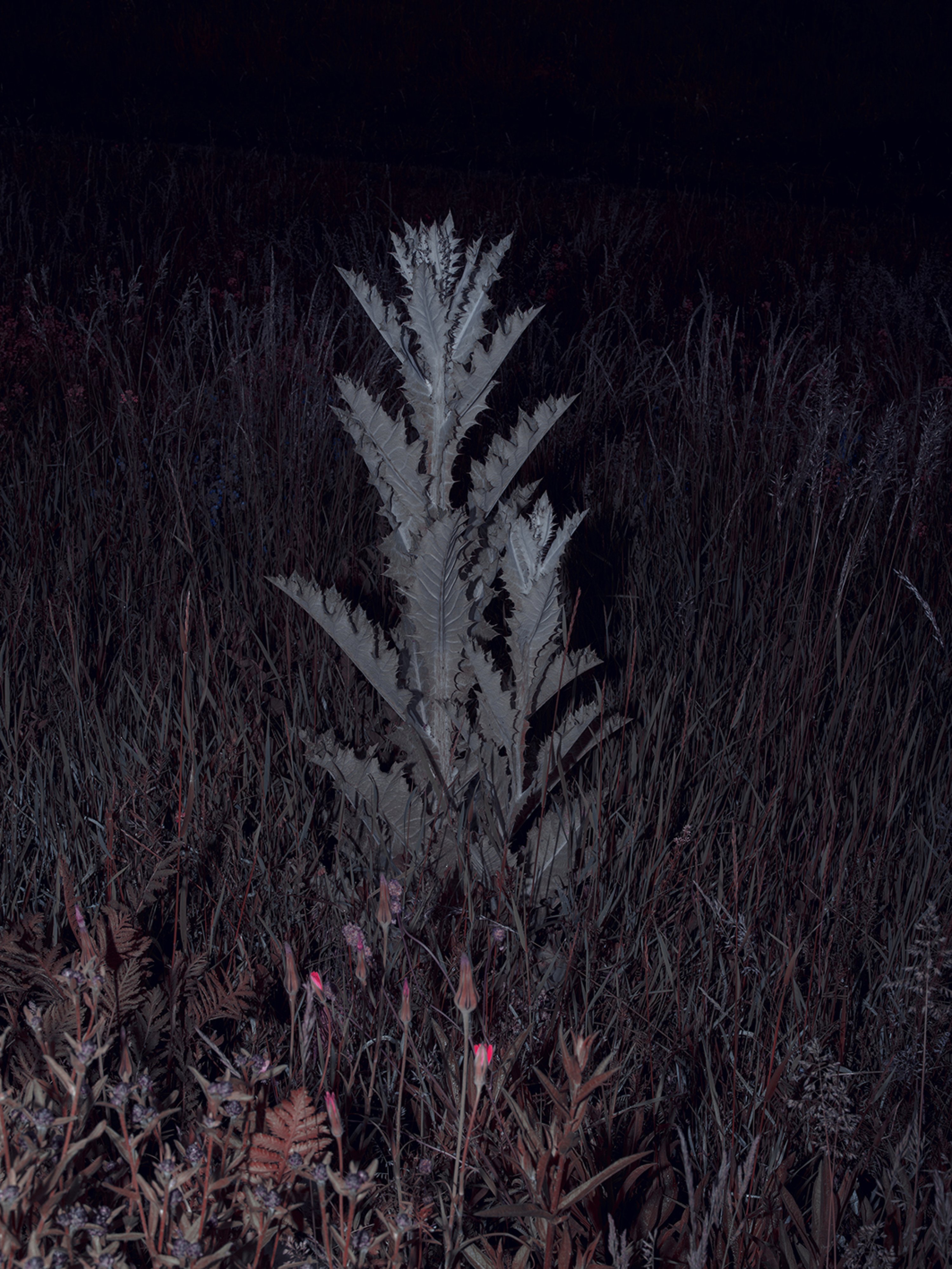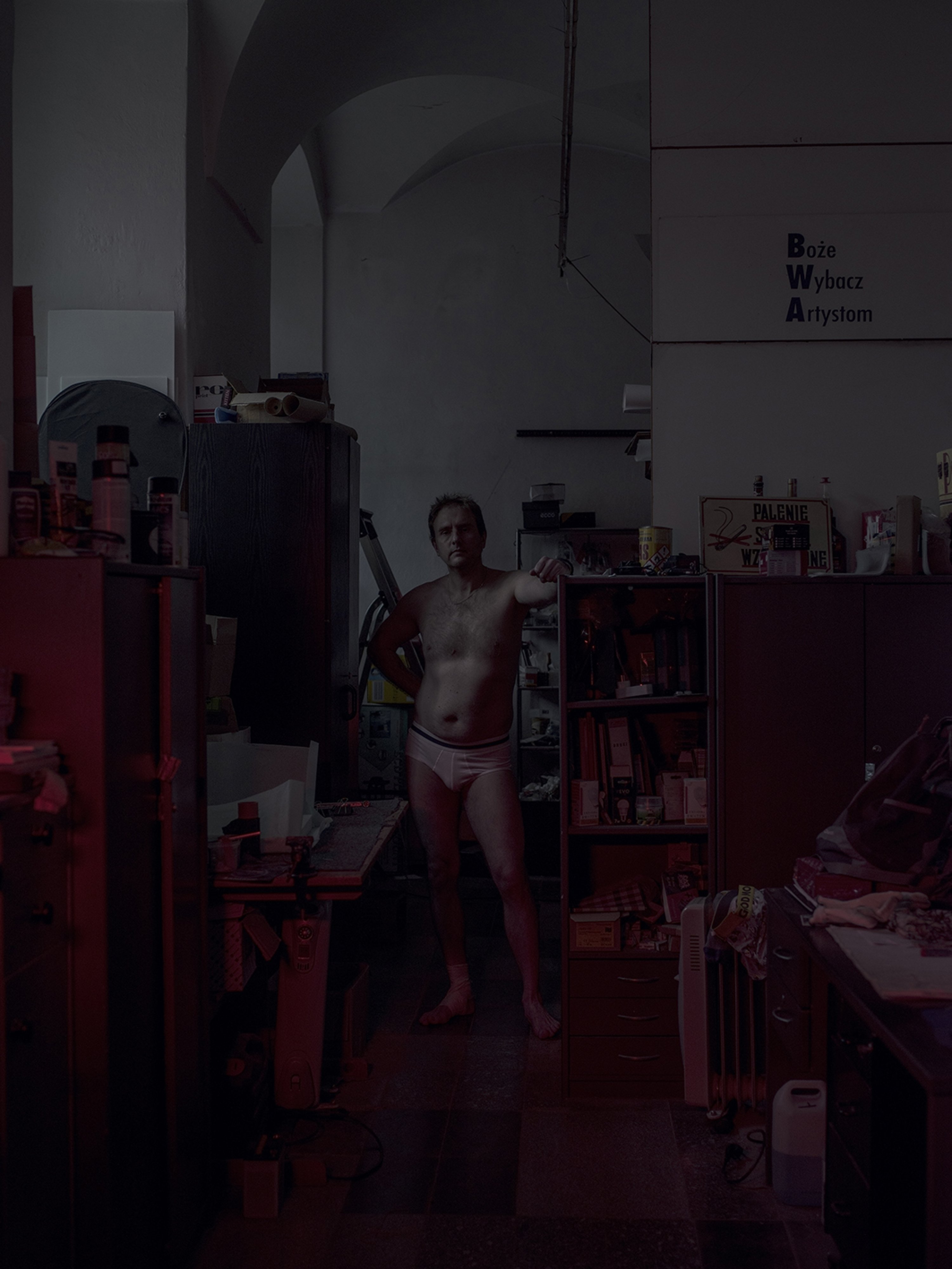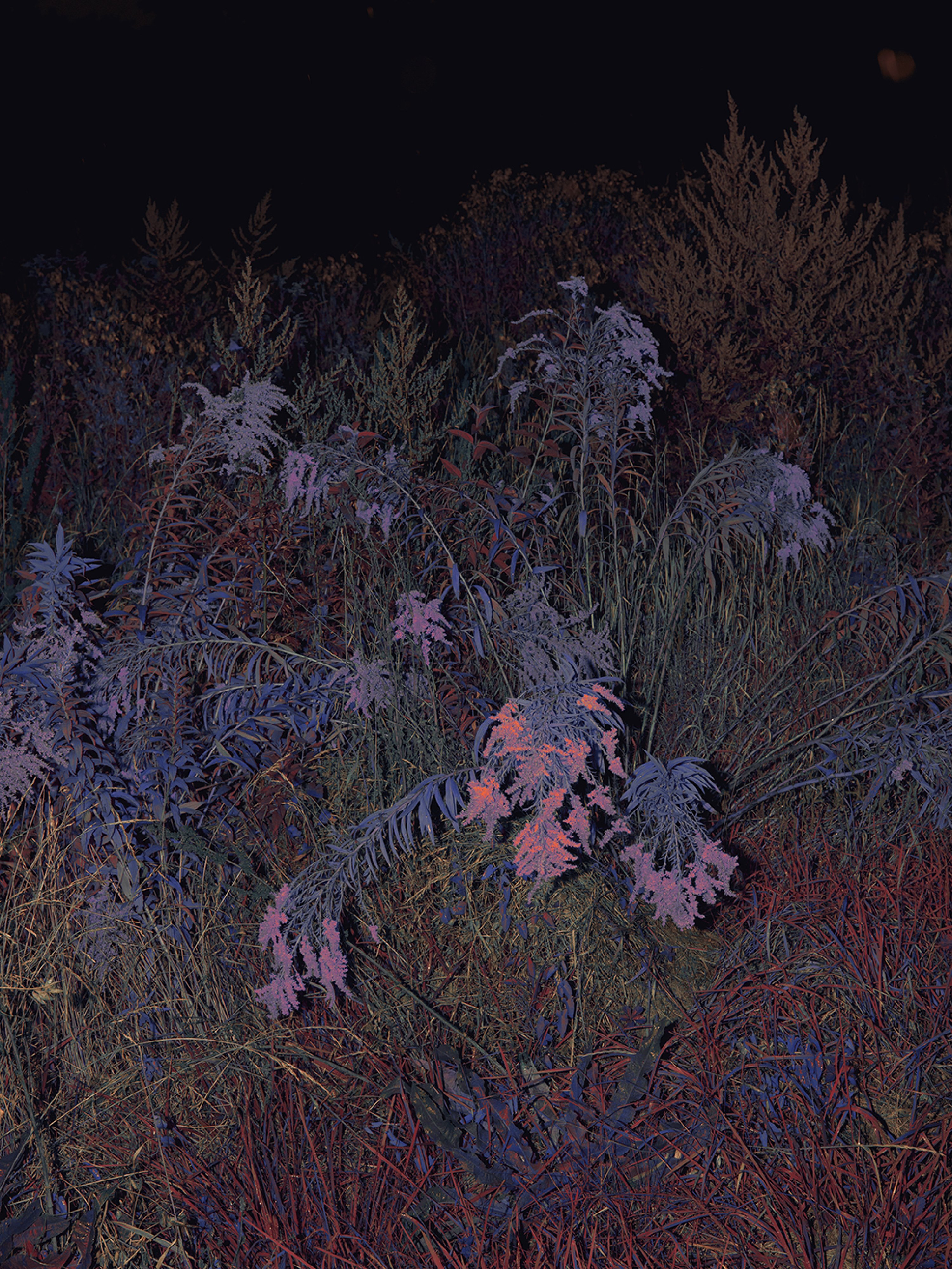Łukasz Rusznica
b. 1980, Garwolin
Photographer, curator, graduate of the Institute of Cultural Studies at the University of Wrocław. Major themes in his work include queerness, intimacy, decline, and masculinity. He builds sensual images balancing between mundane and extraordinary, exciting and anxious. He has photographed club life, and explored hidden aspects of Japanese spirituality. He often presents his work in the form of photo books, which are like carefully curated exhibitions. His publications include "Smog", "Near Infra", "Toscana", "I Won’t Tell You the Most Important Thing", "Underground River", and (with Beata Bartecka) "How to Look Natural in Photos", which has won numerous awards. He also pursues a curatorial practice, running the photography gallery Miejsce przy Miejscu in Wrocław. He says of his work, “I deal with the image and the look.” He lives and works in Wrocław.
untitled, from the series Empires Will Fall
FSP ING 0218
The series All Empires Fall refers to the notion of decline in both universal and personal dimensions. As the artist says of the project, “With time, everything is forgotten—both great civilizations and people with all their dreams and relationships.” Rusznica photographs “companion plants” that grow on the outskirts of industrial areas marked by the presence of humans. The photos are taken using flash, which flattens the image by drawing out elements hidden in shadow. The artificial lighting gives the illusion of eternal night, even though many of the photos from the series were taken at noon or at dawn. Shown in unnatural light, the plants intrigue and seduce, like visitors from an alien world among the ruins of civilization. Photographs of plants are complemented by portraits of mature men who have lost their youthful vitality but remain strong. The artist rejects the cultural concept of masculinity, proposing a more nuanced variant, stripped of an artificial façade. Living in the Anthropocene epoch, we experience the end of the world as we know it every day. Rusznica looks into the future that awaits him (and all of us), but also into the future in which we no longer exist.
untitled, from the series Empires Will Fall
FSP ING 0219
The series All Empires Fall refers to the notion of decline in both universal and personal dimensions. As the artist says of the project, “With time, everything is forgotten—both great civilizations and people with all their dreams and relationships.” Rusznica photographs “companion plants” that grow on the outskirts of industrial areas marked by the presence of humans. The photos are taken using flash, which flattens the image by drawing out elements hidden in shadow. The artificial lighting gives the illusion of eternal night, even though many of the photos from the series were taken at noon or at dawn. Shown in unnatural light, the plants intrigue and seduce, like visitors from an alien world among the ruins of civilization. Photographs of plants are complemented by portraits of mature men who have lost their youthful vitality but remain strong. The artist rejects the cultural concept of masculinity, proposing a more nuanced variant, stripped of an artificial façade. Living in the Anthropocene epoch, we experience the end of the world as we know it every day. Rusznica looks into the future that awaits him (and all of us), but also into the future in which we no longer exist.
untitled, from the series Empires Will Fall
FSP ING 0220
The series All Empires Fall refers to the notion of decline in both universal and personal dimensions. As the artist says of the project, “With time, everything is forgotten—both great civilizations and people with all their dreams and relationships.” Rusznica photographs “companion plants” that grow on the outskirts of industrial areas marked by the presence of humans. The photos are taken using flash, which flattens the image by drawing out elements hidden in shadow. The artificial lighting gives the illusion of eternal night, even though many of the photos from the series were taken at noon or at dawn. Shown in unnatural light, the plants intrigue and seduce, like visitors from an alien world among the ruins of civilization. Photographs of plants are complemented by portraits of mature men who have lost their youthful vitality but remain strong. The artist rejects the cultural concept of masculinity, proposing a more nuanced variant, stripped of an artificial façade. Living in the Anthropocene epoch, we experience the end of the world as we know it every day. Rusznica looks into the future that awaits him (and all of us), but also into the future in which we no longer exist.


